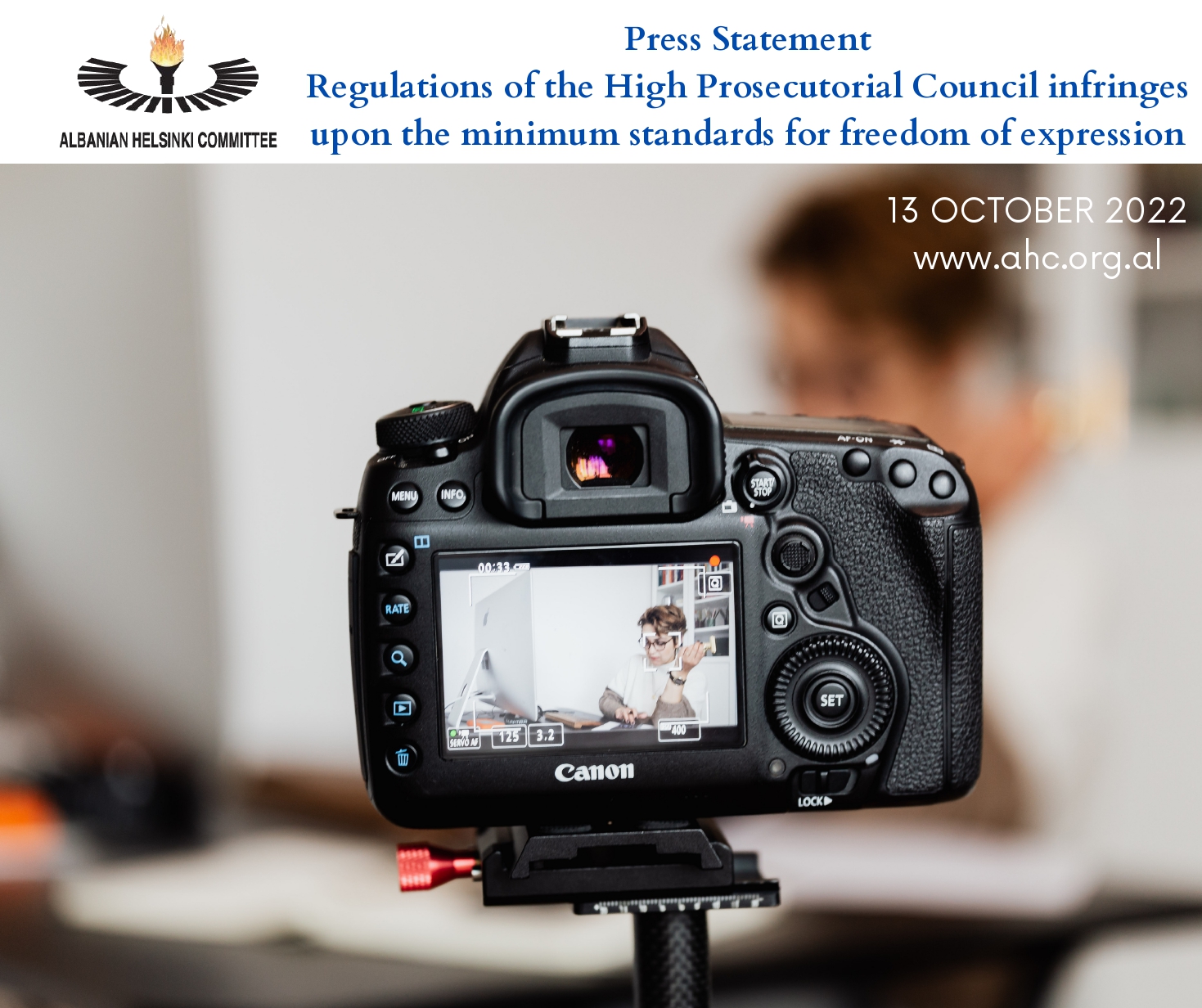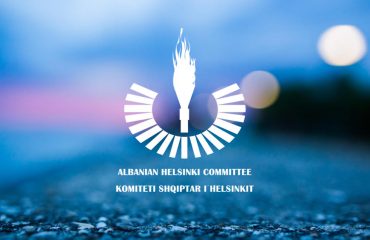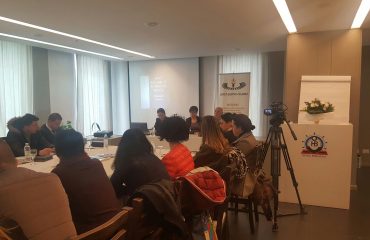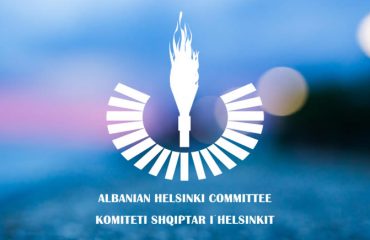Media access to obtain information and convey it to the broad public is of a special importance. The European Court of Human Rights (ECtHR) has formulated a group of principles and rules that grant media a special status.
The Albanian Helsinki Committee (AHC) paid special attention to becoming familiar with the new Regulations of the High Prosecutorial Council (HPC) for communication with the media. Pursuant to our mission, we deem it necessary to express the following objections on several issues:
1. According to paragraph 4 of the Regulations, the journalist is asked that in the form that he/she will present, they should also mention the purpose and the content of the issues that he/she wishes to be informed about. The term “purpose” for the reader, and therefore the journalist, refers to the reason, motive for this request. However, such a request in our opinion runs counter to article 3, paragraph 1 of Law no. 119/2014 “On access to information” that stipulates “every person shall have the right to becoming familiar with public information without an obligation to explain the motives.”
What will happen if the journalist does not mention the purpose why or the reason why he/she seeks the information? If for this reason, he/she would be refused or the request for information would be rejected, media access to obtaining information would be infringed upon. If that were to happen, the formulation of paragraph 2 of article 1 of the Regulations, which states that the Regulations seek to facilitate access to information for the media, would end up being something formal.
2.According to article 8, paragraph 3 of the Regulations, the coordinator for access to information, upon approval by the member assigned by the HPC, has the right to request from the relevant media editors to replace the journalist “if there are clearly noticeable violations of objectiveness and professionalism, as well as violations of the Constitution, the law, and principles of these Regulations.”
Implementation of paragraph 3, article 8 of the Regulations gives the above persons the right to assess very important matters that are not easy even for the Court that may evaluate a case on such a topic. Giving this competence to two individuals means to put them in the role of a judge. How is it possible that they could evaluate whether the journalist has violated the Constitution or not, whether he/she has been objective in conveying information, etc.? Such a provision leaves room for subjectivism, arbitrariness, infringement of media access to information. AHC notices that this is unacceptable and unlawful as it is known that access to information may only be restricted in indispensable, proportionate cases and when it harms certain interests envisaged in article 17 of Law no. 119/2014 “On access to information.”
We also deem it necessary to mention that according to article 2, letter “d” of the Regulations, “The coordinator on access to information is the HPC coordinator assigned pursuant to Law no. 119/2014 “On access to information.” However, referring to article 10 of the above law on “Competences of the coordinator on access to information,” it does not mention any competence (as noted in the Regulations) that he/she may request a replacement of the journalist.
3.According to article 8, paragraph 4 of the Regulations, “When the violation is public, serious, or flagrant, the member assigned by the Council, shall make a decision on annulling the accreditation of the journalist committing the violation. This decision is communicated to the media editor and the HPC is informed in the following meeting.”
As is known, the media obtains information and conveys it to the public. Based on the formulation of the above provision, it is indicated that the assigned HPC member, upon becoming familiar with the story published by the journalist, evaluates and decides to annul the accreditation of the journalist because, in his/her opinion, he/she has committed a serious or flagrant violation, but it is not known where he bases himself/herself for making such a decision. In this case, it is not possible to exclude cases of evaluations that may lead to making arbitrary decision that harm media access to seek information. It is also of note that the decision made by the member assigned by the Council only is required to inform (i.e. make aware) the Council in the following meeting!
The information that the media conveys to the public contains critical comments and a wide variety of interpretations. They are necessary and permissible if they do not surpass the guarantees established for the interest of the authority and impartiality of the judiciary. In this sense, we find it necessary to emphasize that ECtHR caselaw has found that although the judiciary enjoys special protection, it does not operate in a vacuum. There are issues that have to do with the activity of the justice bodies that may and should be a subject of public debate.
Any restriction of freedom of speech, which includes the freedom to obtain and convey information, may be subjected to restrictions envisaged by law and that are necessary in a democratic society, in the interest of national security, territorial integrity and or public safety, the protection of order and prevention of crime, protection of health or morals, protection of the dignity or the rights of others, prevent the spread of confidential data or to guarantee the authority and impartiality of the judiciary. This minimal standard is envisaged in article 10, paragraph 2 of the European Convention of Human Rights (ECHR) and it is mandatory to be applied by every member state of the Council of Europe that has ratified it, including Albania. Therefore, any public institution has the obligation to rigorously respect these standards in its activity and regulatory acts, as well as to analyze with proper care the impact they have on freedom of expression.
Referring to objections presented above, AHC suggests to the HPC to revise the regulations on communication with the media, in order to fully comply with minimal standards of the ECHR.






